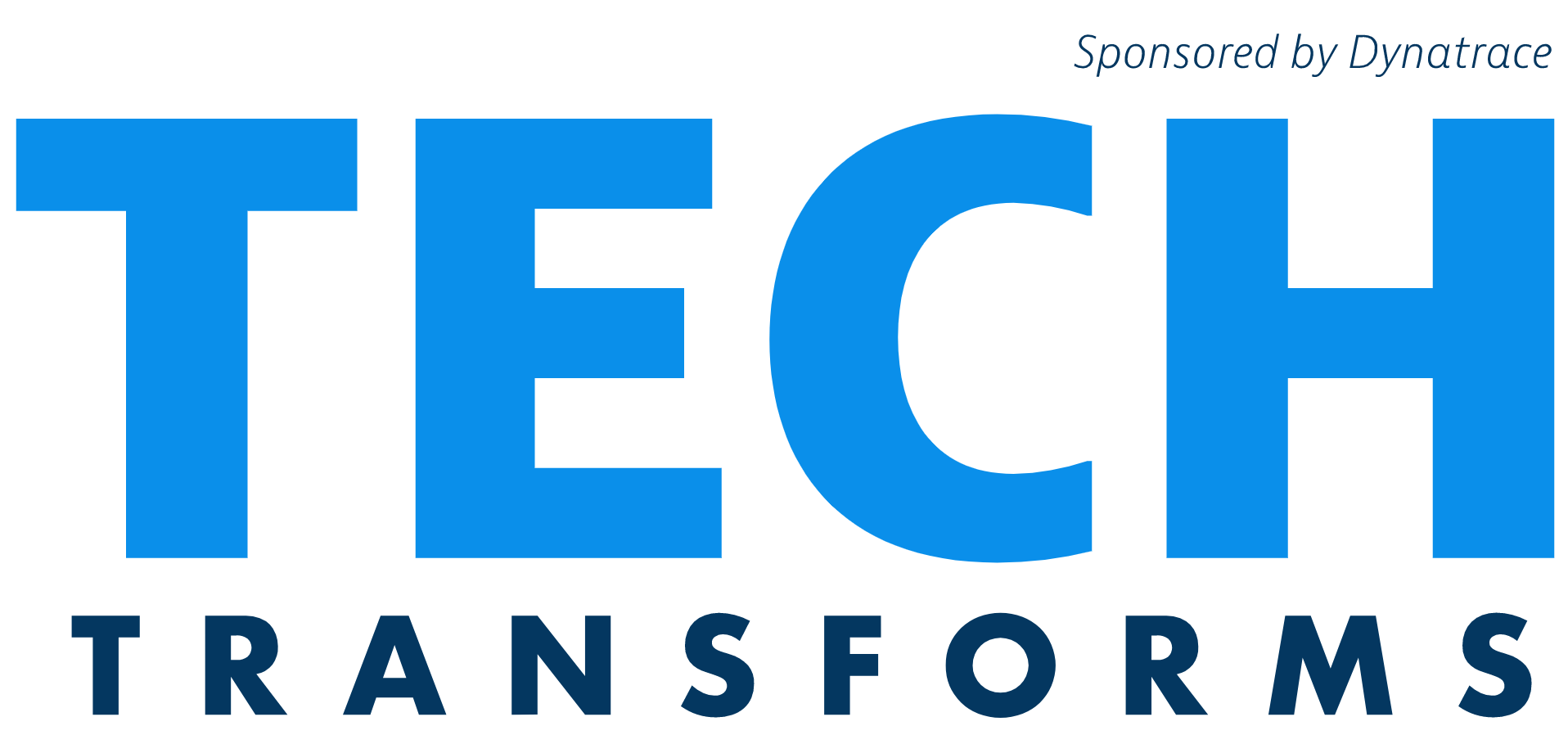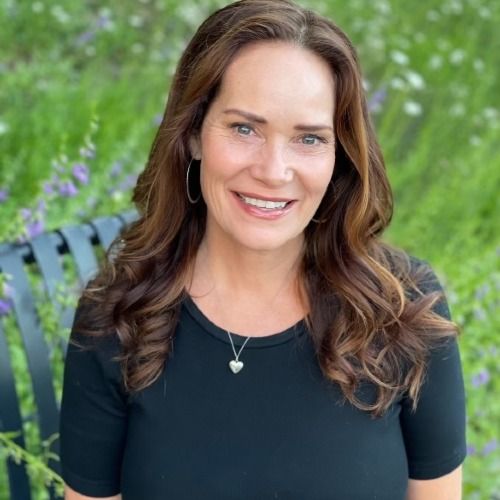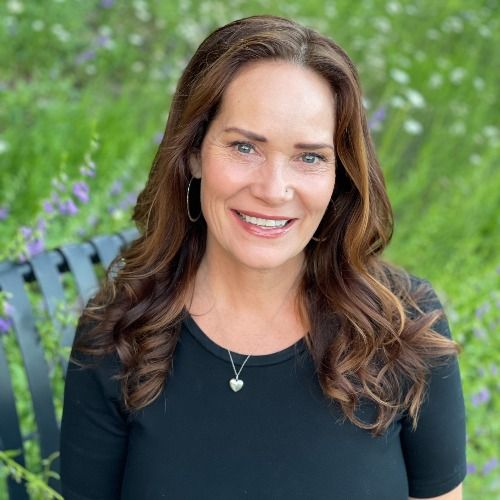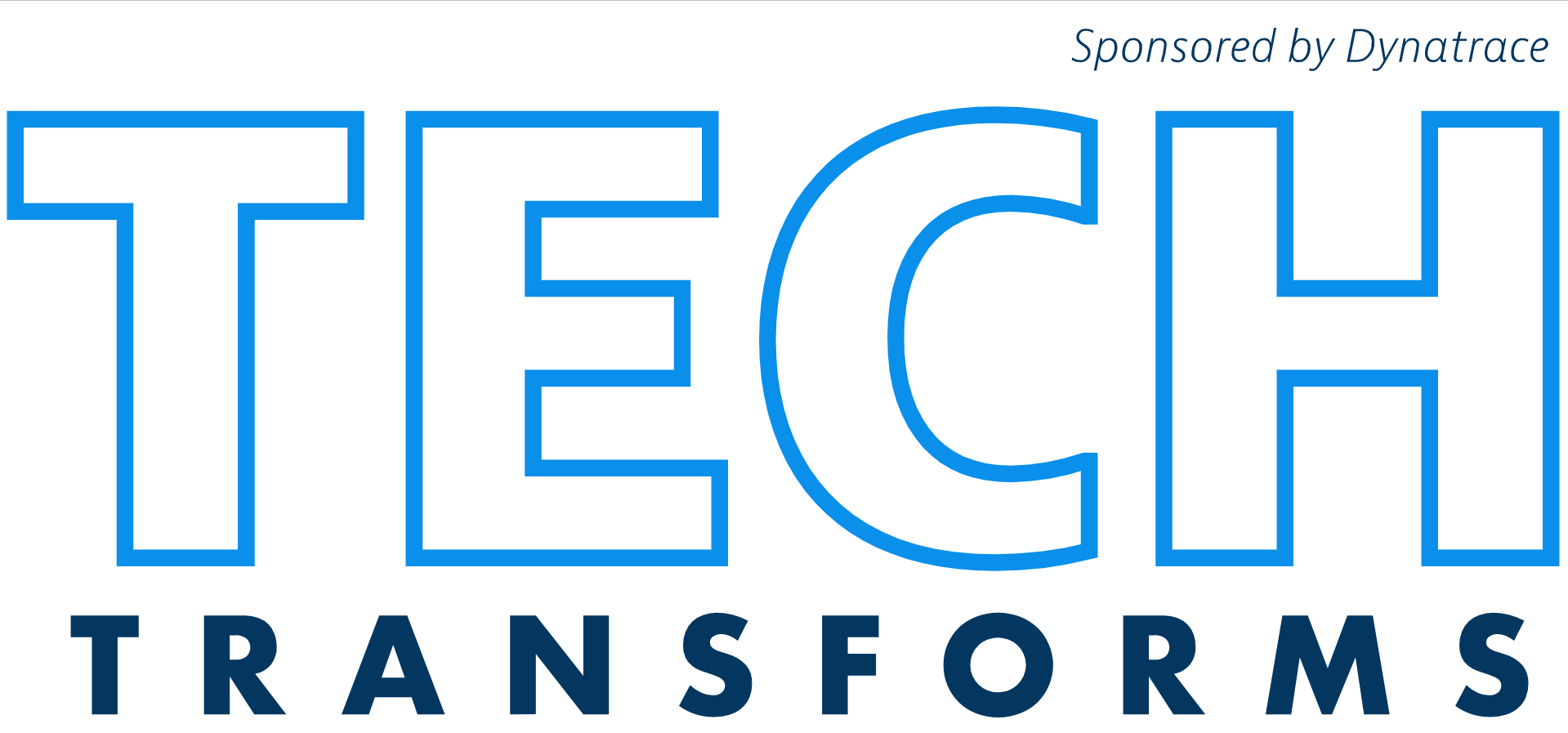Episode 30
Women in Tech Part 1 with Space Force's Jazmin Furtado and U.S. Army's Kris Saling
Women in tech unite on this special episode of Tech Transforms featuring Kris Saling, Chief Analytics Officer for the Army Talent Management Task Force and Director of People Analytics in the office of the Assistant Secretary of the Army (Manpower & Reserve Affairs), and Jazmin Furtado, Liaison at AI Accelerator and Data Strategy Lead at US Space Force. Carolyn, Kris and Jazmin discuss the impact of self-awareness and the importance of data education and fostering change when it comes to government technology.
Episode Table of Contents
- [00:27] Introducing the Women in Tech: Kris Saling & Captain Jazmin Furtado
- [10:32 ] Take It From a Human Approach
- [17:27] Pulling Other Women in Tech Into the Circle
- [24:45] Women in Tech Are Influencing One Another
- [30:14] Women in Tech Are Making Sure They’re Helping Everybody
Episode Links and Resources
Introducing the Women in Tech: Kris Saling & Captain Jazmin Furtado
Carolyn: This week we are going full girl power, so Mark got uninvited. Today we have our Women In Tech panel featuring a couple of guests who have previously been on our show, Kris Saling, Deputy Director of Army People Analytics, and Captain Jazmin Furtado, a Data Strategy Lead at the U.S. Space Force and Space Force Liaison at the MIT AI Accelerator. Welcome back Jazmin and Kris to Tech Transforms to talk about your journeys in government technology.
I'm really excited to talk to both of you again, but before we get into that let me do a little housekeeping. So I just want to remind our listeners that the views of both Kris and Jazmin are their own and do not necessarily reflect the views of their agencies. I'm just going to say that for myself, too. Because I warned this, too, before we started. I'm like, "I got some stuff I need to get out." And I want to be able to talk freely today.
Let's start talking about challenges that both of you have faced being a woman in the technology space. The fact that we even have to say, "Being a woman in the government technology space," other than, we're in the technology space and we kick ass. I hate that we have to do that but I still feel like we do. I'm already getting up on my soapbox. But, let's start with you, Kris. Some of the challenges that you've faced.
Kris: So, it's one of those where I don't want to say there aren't any challenges. But I've encountered so many of these challenges throughout my career. I just hit 20 years last summer, I'm going to hit 21 years this coming summer. Yes, it's almost the summer again.
Kris Saling’s Challenges for Being One of the Women in Tech
Kris: So it's been a long time of sitting there with the typical, the anxieties, the imposter anxiety, the "What is my balance between being assertive. And how do I not come off as, "Insert your," kind of "The common anxieties"? It really hasn't been all that different. I've been trying to figure out the right balance of how to present different things. How to present facts so that they are listened to. How to present data to an audience where not only do we have the schism between having an audience that's operational and I'm on the technical side. But sometimes it's very obvious that I know quite a bit more about the subject than the people I'm talking to.
I think one of the biggest challenges is I really didn't get to know myself and how I wanted to present these things. Because I was very much fixed on how to present that particular image until I really got into data education and started teaching people. That really helped me find a balance in how I wanted to talk about very technical subjects, both with a technical and a lay audience.
So I won't say it's overcome all the challenges. You still go out a lot of times, still the only woman sitting in the room. I do have a little bit of a reputation now that I can trade on. So I come into the room with a certain amount of that reputation. But I've seen a lot of cases where that hasn't been the case. Where people have come in and haven't quite known how to throw all those and hold their ground in areas where they're competent. How we make the opportunities to do that because that's where other opportunities come from.
Captain Furtado Shares Her Perspective on Being Part of the Women in Tech
Carolyn: Jazmin, have you felt that?
Jazmin: Yes, so a lot of the same things. I'm very aware of how I may be coming across. And depending on the level I'm speaking at, I have to maybe change the way I present something. Because I'm having to always pick apart and analyze what makes that person tick. I'm not saying that's maybe something specific to women. I feel like maybe everyone has to do that to some extent.
But of course, I only know from my perspective how much of my time goes into not just the content but just my body language, my tone, the inflection in my voice, the pacing of my words. Because a lot is taken away already from visuals and the unspoken. So there's already a front that I put on and that I present to people when I walk into a room. And there's already preconceived notions of who I am and what I can do. So having to overcome those is maybe an extra thing that others may not need to.
But I've thought about this a lot and I try to think about the other's perspective. I've come to realize that a lot of times, most of the times, there's not necessarily any ill intent behind how people perceive others. Maybe there's an audience that is not conscious of their own biases.
I think it's beneficial for all of us to check ourselves and check the comments that we make in the workplace. Because things that may be seen as teasing or something that's lighthearted may actually be eating away at the mutual respect that you have for another person. They may eat into the other person's credibility as a professional, as a leader.
The Imposter Syndrome Experienced by Women in Tech
Jazmin: So please be cognizant of these comments because these small things, especially in a public forum, they start eating away at that. And it's not appropriate in the workplace to be making these side comments and thinking that there's no consequence. So just as an input, I guess, for everyone out there, when you're speaking just be aware of your slang or colloquial. Be aware of the unintended consequences of some of the things that are being said.
Carolyn: I'm just going to admit this right upfront. I have found myself through my career. Because I've been in technology for 20 years now. Often the only woman in the room. I've felt like a little bit of an imposter. I started out in product management, definitely felt like an imposter there. Because I was interpreting what developers were saying, trying to understand what users needed. I was always the only woman in a sea of men. Then when I moved to marketing I suffered another kind of imposter syndrome where I thought, "I'm not really in the tech field, but I am." Like, "I need to be able to tell this story."
This is taking a really long time to get to my point. Throughout my career as I look back, I've noticed that I have done things and portrayed myself in a way and used language that I thought would make me fit in more, drink too much, swear like a sailor. But I have to say I love swearing. So I've just embraced that as part of what I really like and no longer consider that me attempting to fit in with the boys because I just like to swear. But other things, even what you were just saying Jazmin about being cognizant of slurs.
Fight Like a Girl
Carolyn: I grew up with a cold war Army dad. Believe me, I have some slurs. And I didn't even realize how offensive they were until pretty recently. Some of the stuff that has come out of my mouth, I'm like, "I can't believe I said that," and towards women. I used to say, "Fight like a girl" all the time as an insult, not as props. So have either of you noticed that?
Kris: So I think there's a lot of that, that's part and parcel. I've enjoyed my later years of being a little more senior ranking and a little more salty overall, of being able to call that out. And to stop people when they're making statements, or even making assumptions about anything having to do with women. Like, certain programs should be marketed this way towards women.
That's usually where I start throwing things at them figuratively because we're virtual. But try to at least get their attention and say, "Hey, guys, you just othered an entire 50% of the population, 17% of the Active Army population. But that still is a large percentage of people that you just said, 'All of these people think the same way.'"
One of the principles that we've been working on in talent management is getting away from the one-size-fits-all method of work and method of leadership. And that has really lent itself to fostering a lot of these discussions about how we work. In the Army at least, it's 1.4 million people when you consider all three components in our civilians, and they're all different and everybody is different.
Carolyn: Oh, so take it from a human approach, is that what you're saying?
Take It From a Human Approach
Kris: Shocking, isn't it? As opposed to the industrial model that we employed over the past 50 years where everybody is interchangeable. And we don't see you as a human. We see you as some kind of a cog categorized by your grade and your career field. Instead, let's look at you as a person. Let's do some, shocking again, human-centric design, and let's start seeing people as people for capabilities. Rather than what we assume comes with and based on people's personal biases.
They make a lot of assumptions that people come with a lot of baggage. So I think we're making some progress. Again, when I say we're making some progress it's like we're starting here. We know it still goes on heavily throughout the organization. But we're getting our foot in the door there.
Carolyn: So you're not going to admit to anything that you've done in the past?
Kris: Oh, you mean as far as things I've said or things I've done?
Kris: I just spent 12 years as a combat engineer. So that was the first 12 years of my army, work hard, play hard, swear hard, still swear hard. I have to remember sometimes that I'm in an office building.
Carolyn: Did you go into combat to prove something?
Kris: I graduated from West Point in 2001 and all the women that I trained with there, all the women I met in my officer basic course in our first unit, we always were under pressure to prove that we belonged. It was always the, "Oh, we're going to prove that we can do this and we can do that thing." But it was always earning your place and proving you belonged, which was a heck of a lot of pressure.
Women in Tech Experience a Lot of Pressure
Carolyn: Yes, the first has to be better, stronger, the first always has to. So what about you, Jazmin? Are you going to admit anything?
Jazmin: Well, I can't actually think of any examples but I know it has happened to me. And I don't think anyone ever perfects the self-policing of the agency. Check yourself before you make statements. But as long as the intent is there and the effort, at least, in some regard have measured. And the progress is being seen and being able to proactively catch things before you say something. Or recognize that a topic may not be the best one, maybe there's another topic to bring up, it's great.
I think in my previous job I didn't really appreciate the role that a person that's put in a leadership position or authority has over that culture. It's the little things that a leader does. The topics they bring up, the things that they decide to talk about just in a forum. What topic? Are you just going to talk about one topic all the time? Maybe sports, the stereotypical one. Who are you leading? Get to know them. What are the things that they're interested in and then as a leader, make sure that you can represent your team and their interests, and talk to them and connect to them in a way that is more comfortable for them.
So when I was at Kessel and I actually saw that quite a bit. There's a lot of these cultures that are pushing for psychological safety and the training that comes with it. And seeing it more in the workplace, making me more aware, it makes me take a look, "Oh, what are things I said before."
An Environment of Psychological Safety
Jazmin: And I'm still trying to think of an example but nothing comes to mind right now. But yes, I think those trainings have been really great because the people in specific roles have a big part to play in that.
Kris: Jazmin, if I can jump on one of the things you said about talking about the same topics all the time and here's how people connect. We've talked about that a lot in the return to the office, the people who are pressing for it and the people who aren't. A lot of the people who are pressing for it, we're finding some commonalities in the ways that they want to connect. And a lot of the workforce that they have who doesn't want to come back hasn't connected with what they feel like that office culture is.
So I think when you start talking about providing an environment of psychological safety and providing an office identity that people can connect to. How do we connect ourselves with that culture? We really have to think about that if we want people to maintain that connection, both remotely and when they come back to the office. Or if they come back to the office. I'm a big proponent of remote work. I just have to throw that in there.
Jazmin: Yes, and definitely it has to be very proactive. It's a lot of work to do that. And it takes people out of their comfort zones to push for certain topics, push for events, push for these kinds of forums to happen. It doesn't just happen by itself, you can't just will it. So yes, it's really great to hear.
Women in Tech to Fostering Change
Carolyn: So I'm going to put us all on the spot a little bit to foster this change. Because the truth is, at a macro level we are still grossly in the minority. So what have we done personally to help foster this change? Maybe an easier question is what have you seen leaders do to help foster this change or have they? Or are we still missing this? So, Kris, I know this is a focus for you because it's your job. What do you recommend? What's happening?
Kris: Are we talking about just making more opportunities, more mentorship? I'm going to guess, all.
Carolyn: All of it, is that where we start, just making more opportunities and how do we do that? I think what we're doing right now is an important thing because we're talking about it.
Kris: I think we're talking about it and we have three women in tech in this conversation who have been imminently successful in their own domains. And we've all been in domains where there's not a whole heck of a lot of us. We've had mentors who are male who have come in, who have seen something in us. Who have seen those qualities and have provided advice, who have provided guidance.
And every time, at least lately since I've been more aware of it, I've had a mentor provide that guidance. I've encouraged them to think about, "Why are you providing me that guidance? Is it because of this particular thing, that particular thing?" Let's reach out and look at all the people you have in your mentorship circle and figure out who's not there. What are the other kind of opportunities?
Pulling Other Women in Tech Into the Circle
Kris: And I've started learning to ask myself, I need to be better about it, it's like, "Who else can I pull into that circle?"
Carolyn: So are you mentoring then? Even officially, unofficially, you find people to mentor as well.
Kris: I do. I've had a lot of people talk to me. Because I work in a very interesting niche. There are a lot of people who try to figure out what exactly my job categories are. Because we're doing all the things, people analytics, we're doing talent management for the Army's data workforce. We're doing data education and there's been a lot of focus on just, "Who's going to take over the programs? Who's coming up?" Because they know at some point or another I'm going to retire. I'm going to go do something else. And I'm going to go start other projects. I'm going to try to carry on the somewhat entrepreneurial frame that I've looked at things in the Army with some other venture.
So I look around like, "Okay, who's coming up? Who's got interest in some of the same projects I'm working on? Who really wants to foster change? How can I bring them in and get them some of those connections and get them some of the experiences working with the different types of projects and project leads and leaders." And as I'm doing that I really want to make sure that I'm bringing in all of those perspectives. That I'm bringing in not just more of the same. Because we want new perspectives. We as an organization have said very emphatically that we want change. Now we just need to prove it by bringing in people who can make the change and who see things differently.
Good Mentor vs Bad Mentor
Carolyn: Well I love that you have a mentor and that you are mentoring. Jazmin, have you had mentors, male or female? Do you participate in some official or unofficial mentoring?
Jazmin: So I have had quite a few great mentors. I've had a couple of pretty bad supervisors take on leadership roles. I think what has distinguished them is the good mentor, the people that I really look up to listen. They figure out what motivates me. They really try to find what am I really looking for out of my career. And they don't look at what can I provide to their organization right now. That makes all the difference when you're not seen as just someone that outputs and delivers products.
I think the people that have been great mentors look at the potential that I can provide in the long term. And that being able to give me those opportunities that feed my own personal and professional growth does both things. It both helps myself and it helps the organization. Because I'm being put in the best capacity and being put to best use in the organization.
So like I said, I've had the opposite as well where folks are just, how do I say this? I am in this organization for two years. As much time as they can put into me doing that one and one job only, and my scope is this big, there's no way for me to say anything else around it. Because that role is really important to the organization and they need me to do X, Y, Z. And those are positions that I do not thrive in.
Women in Tech Are Helping Each Other
Jazmin: But from a mentorship or from a supervisory standpoint, if you don't get to know your people then you're going to realize the limitations that you put on yourself and your organization as a result, so, yes. In terms of me mentoring other people, I have found LinkedIn to be great. This is not a plug but it's the only way actually that I get to talk to people outside of my realm here. There are some events that I'll speak at via recruiting events or...




